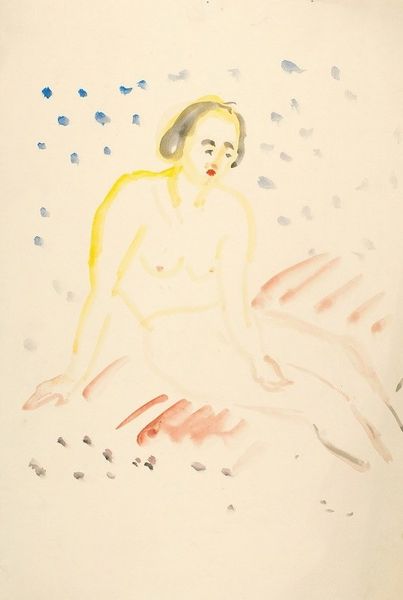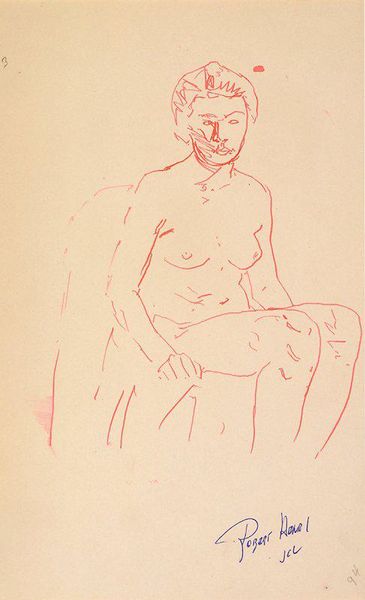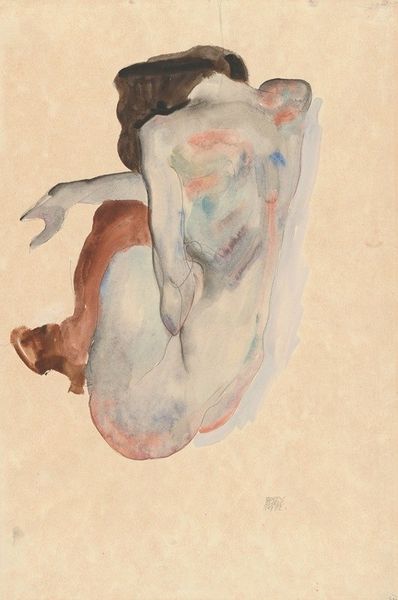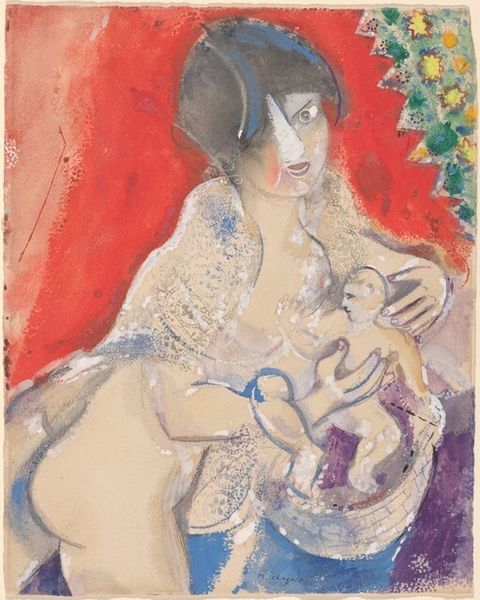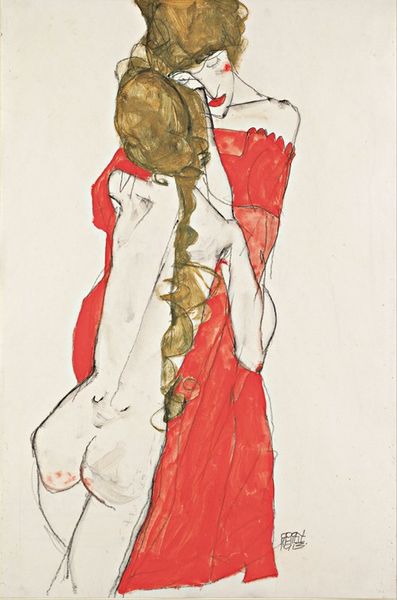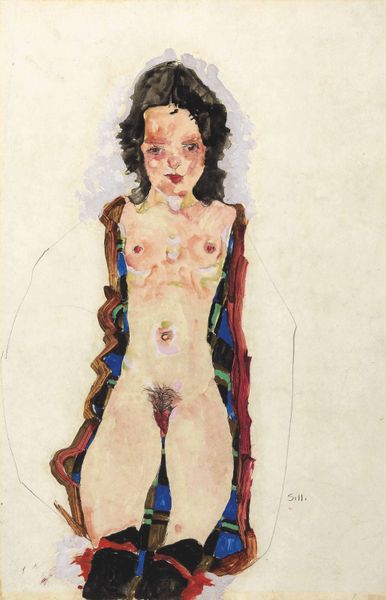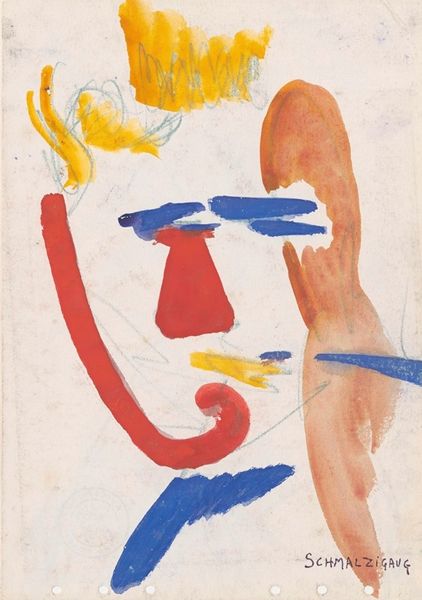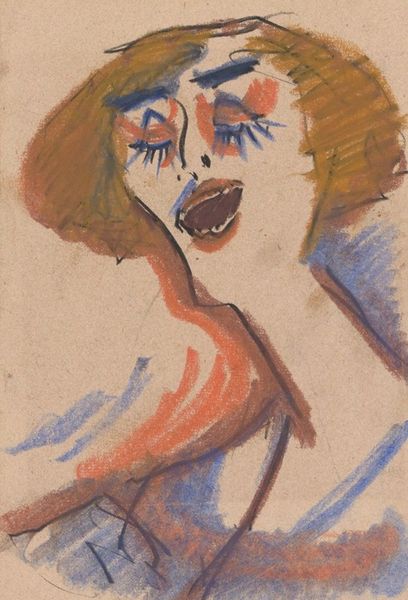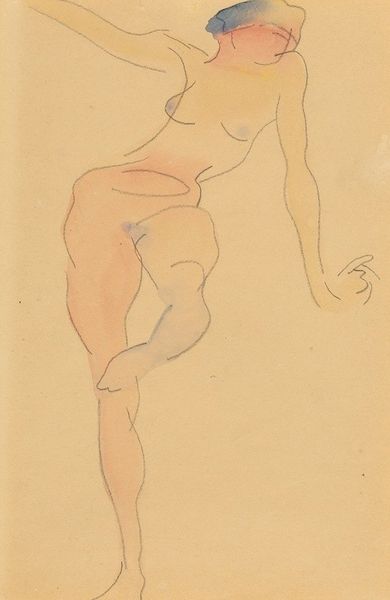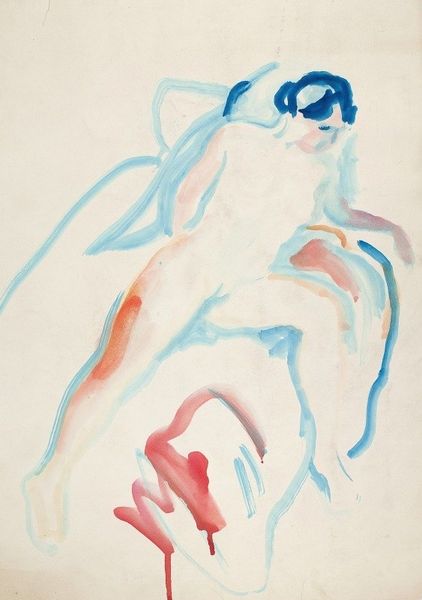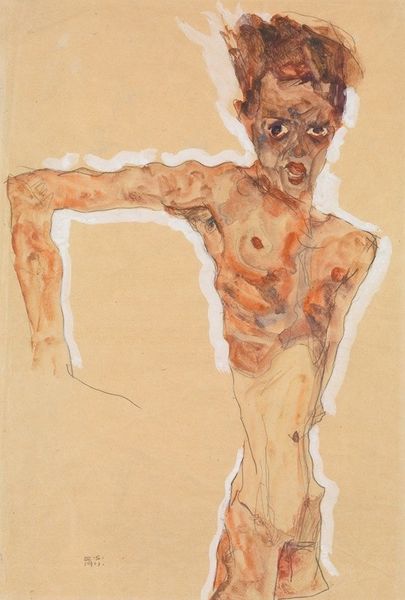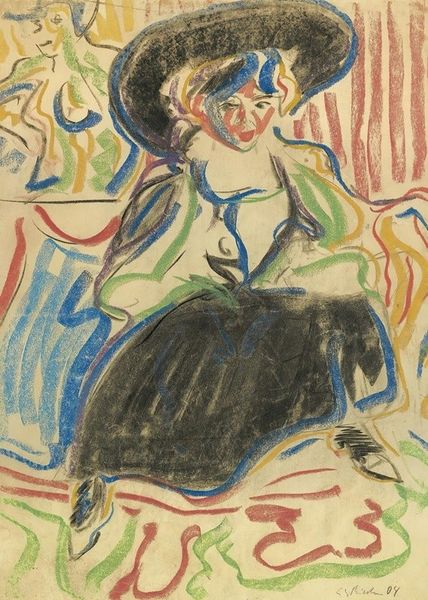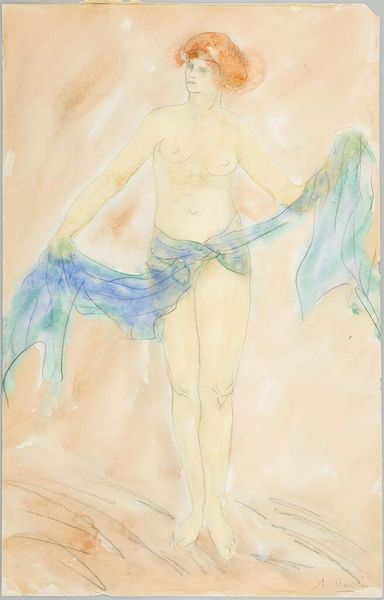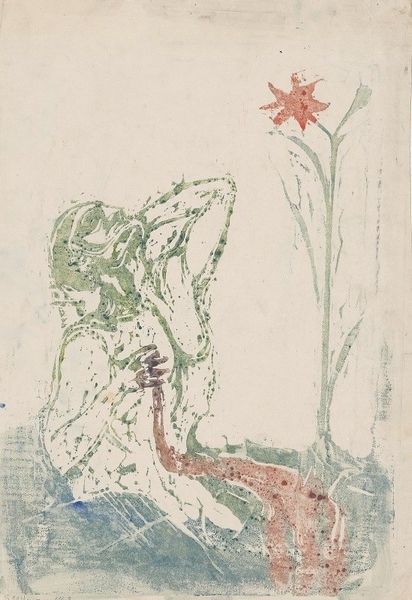
painting, watercolor
#
portrait
#
painting
#
figuration
#
watercolor
#
intimism
#
expressionism
#
nude
#
modernism
#
watercolor
Copyright: Public Domain: Artvee
Editor: So, here we have "Kvinneakt," a watercolor by Edvard Munch, created sometime between 1925 and 1930. It's a nude, but presented so fleetingly, so sketched. It almost dissolves before my eyes, what's your take? Curator: I find that ephemerality quite striking. Look at the palette – the predominance of pinks and blues, barely tethered to the paper. Munch gives us not so much a body, as an echo of one. What memories do colours evoke for you? Editor: Well, the red is certainly passionate and raw... I guess that's hard to ignore in a nude! And blue, maybe, a feeling of melancholy? Curator: Red has been coded with power, violence, life blood since prehistoric times, the ochre of cave paintings, for example. Blue’s associations shift depending on cultural context – sometimes it indicates holiness, the Virgin Mary’s robes; other times it’s associated with the mundane, like blue collar work, and melancholia as you observed. Do those associations feel relevant here? Editor: Interesting. Thinking about it now, the vulnerability expressed overrides the "power" implied by the red. Almost a primal scream of feeling. Curator: Exactly! And consider the lines: seemingly hastily drawn, unfinished. He leaves room for interpretation. We fill in the blanks from our own storehouse of cultural and psychological understanding. Munch plays with our collective memory. Editor: That makes sense. It is expressionistic, and forces you to grapple with the work, to almost collaborate in its final rendering. Curator: Indeed. An emotional collaboration. One that reveals as much about us, as it does about the image and the maker. Editor: I see what you mean. I’ll definitely remember that "collaboration" when I look at this again. Thanks!
Comments
No comments
Be the first to comment and join the conversation on the ultimate creative platform.
